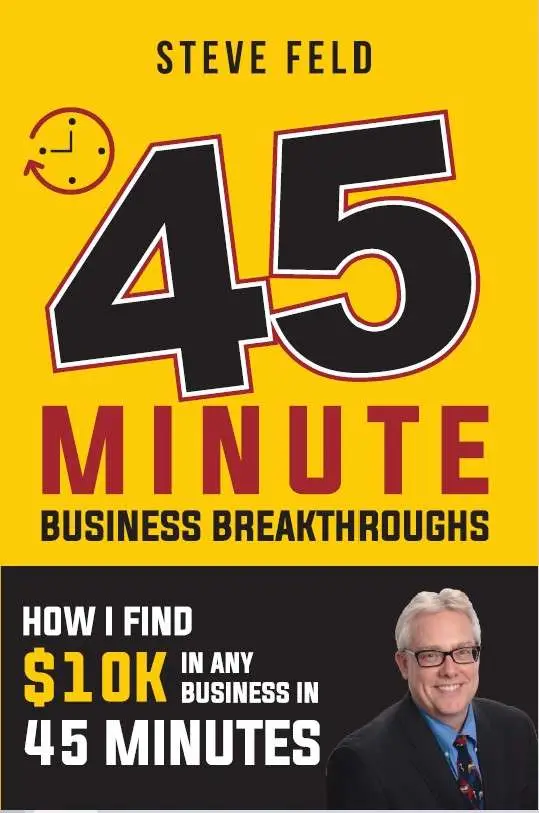You may not realize it, but the most critical junctures in your career involve selling. Whether you’re selling a product or service to a customer, an idea or a plan to your management or investors, or yourself to an employer, your ability to sell will play a huge role in your success.
Unfortunately, most people aren’t born with the sales gene. Not only that, selling has sort of a bad rep. I remember telling my parents many times that I do not want to be a salesperson, while at the same time I was the top salesperson at the company where I worked. My dad just laughed and told me that I am always selling, just like I did with him and my mother.
Looking back, I now know what he meant. Sales taught me about connecting with others, getting them on board with an idea, negotiating, and closing. I put all that to good use throughout my career as a senior executive and in management consulting.So, can you.
There are four fundamental concepts you need to understand to sell anything to anybody. Learn them, practice them, and above all, make them uniquely your own by determining how to best integrate them into your DNA, your own situation, and the goals you’d like to achieve.
1) Do your homework:
Know your customer, audience, whoever you’re selling to. Know what their role is, what responsibilities do they have, and what are their objectives to buy your product or service. Understand as much as you can about what’s in it for them. You should also know your competition and all the possible objections and hurdles you might face.
Just as importantly: know whatever it is you’re trying to sell. Know it cold. Whether it’s an idea, a product, a plan, whatever, know it inside and out. And, without a doubt, know it better than anyone else, especially those you’re selling to.
It sucks getting beaten up by a customer or your boss, because you didn’t prepare and did your homework. Find out what the customer really wants and satisfy that need or want.
2) Ask and listen:
So, you did your homework and now you’re ready to sell. You’re so prepared and passionate that you’re chomping at the bit to get it out. Don’t. Here’s why. Take a step back. You may come off poorly, even pushy because your presentation will be all about you. Remember, it’s all about THEM. Their needs and wants.
Ask how you can help them. Ask what their goals are. Ask what their concerns are. Then listen. Ask leading questions and listen some more. Keep listening until you have a pretty clear understanding of the whole picture. Then recap what you think you heard-this gets by-in.
Sometimes you may have to have a few meetings to get to the sale – that’s fine. Listen
to what their concerns are, what will satisfy their needs and wants. Don’t be pushy.
Have a natural conversation and listen to what really matters to them. Information is
power.
3) Make a genuine connection:
If you have the world’s greatest product or idea, that’s great, I’m sure you’ll kill out there. If not, then know this: Every business transaction involves a genuine connection between individuals. It’s not always a deep relationship, but it’s a relationship, nevertheless.
Sales are either made or not within the first 30 seconds. You need to connect with people, you have to explain things in a way that resonates with them. If you’ve done your homework, asked the right questions, and listened carefully, you should know what they’re looking for and how to overcome their concerns and meet their needs.
Purchasing anything is an emotional transaction and primal needs, supported with internal logic and information. Genuinely connect with the person and communicate using anecdotes and analogies that will cut through and resonate with them.
People like to hear about ideas, features, and performance. They need to hear about benefits and what’s in it for them even more. But when it’s all said and done and they’re on their own deciding, it’;s an emotional connection to stories and people they’ll remember. And that’s what will motivate them to go for it.
4) Know whose side you’re on:
This is a tough concept for people to grasp but it is key so listen up. You may be sitting across from someone, physically opposite them, but in reality, you’re on the same side. The sooner you get into that mindset, the sooner you’ll get deals done.
You see, many people view sales the wrong way. In a certain sense, you’;re actually working for the customer or whoever you’re selling to. That’s because your job is to understand and serve their needs. To help them achieve their goals. That’s your job. That means you work for them.
And you know what? Your customers need to know that. That you’re there to help them achieve their goals. That you’;re partners. That you’re willing to move mountains for them. And oftentimes, that’s what you have to do to get a deal done.
It doesn’t matter if you are on the sales force pounding pavement, smiling and dialing, or in accounting speaking with a vendor about in invoice, the custodian who gets asked a million questions from passer byes (check out Disney University)– you’re all in sales. You are selling yourself. Not for money, but your image, the company that you represent, the type of person you are. If the person you are communicating with connects with you, a sale can be made.
When people pick up on your genuine desire and ability to jump through any hoop to help make them successful, fulfill their needs and wants, that, more than anything, will help you get deals done. That’s how you become successful. By convincing others that you can and will make them successful–and then doing it.[/vc_column_text][/vc_column][/vc_row]



